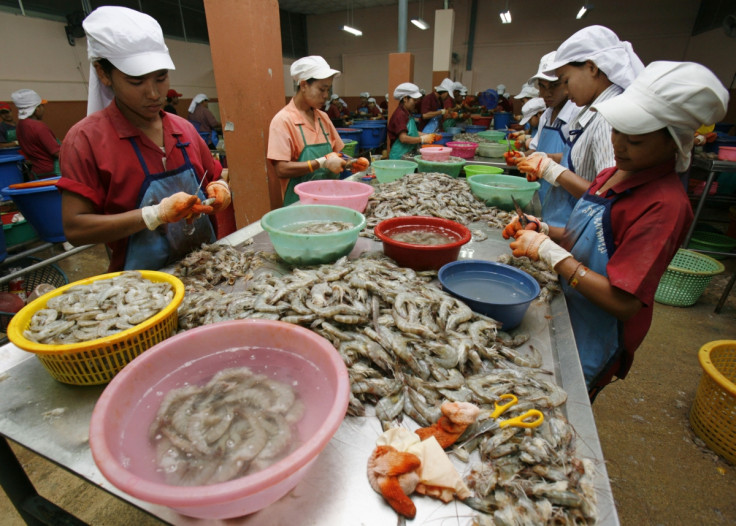Nestlé admits forced labour, trafficking, and child labour in its Thai seafood supply

A report undertaken by Verité and commissioned by Nestlé has found that the Vevey-based company has serious issues with human right abuses in its Thai seafood supply chain. The announcement came as Nestlé unveiled an action plan to tackle the issues.
Verité's investigation covered six main production sites in Thailand that supply Nestlé – three shrimp farms, two ports and a docked boat. In the report entitled Recruitment Practices and
Migrant Labor Conditions in Nestlé's Thai Shrimp Supply Chain, Verité found indicators of forced labour, trafficking and child labour.
Migrant workers have their passports withheld and are forced into debt bondage after being recruited without any idea of the conditions they would be working in. Some reported being "sold" to a ship captain. Verité also found that there were no age checks and a number of underage workers were engaged in sea-based work.
A Burmese worker who had escaped from a ship said: "Sometimes, the net is too heavy and workers get pulled in to the water and just disappear. When someone dies, he gets thrown into the water. Some have fallen overboard."
A boat leader said: "Many workers have no passports, no documents. No one verifies age or where workers come from, how they get here."
This is not the first time employment practices in the Thai shrimp industry have come under criticism. In 2014, a Guardian documentary found slave labour being used in Thai companies that were supplying a number of supermarkets, including Walmart, Carrefour, Costco and Tesco.
A number of anti-trafficking organisations have hailed Nestlé's honesty: "It's unusual and exemplary," Mark Lagon, president of Freedom House, told the Guardian.
Nestlé's purchasing in Thailand is mainly for its Purina brand Fancy Feast cat food – which is already being sued by pet food buyers alleging that it's the product of slave labour.
Verité commended Nestlé, saying the company "could have a positive impact on the whole industry by raising the bar on labour protection." The NGO also pointed out that this was not an issue solely affecting Nestlé, saying: "Virtually all companies sourcing seafood in the Thai seafood sector are exposed to the same risks."
© Copyright IBTimes 2025. All rights reserved.






















